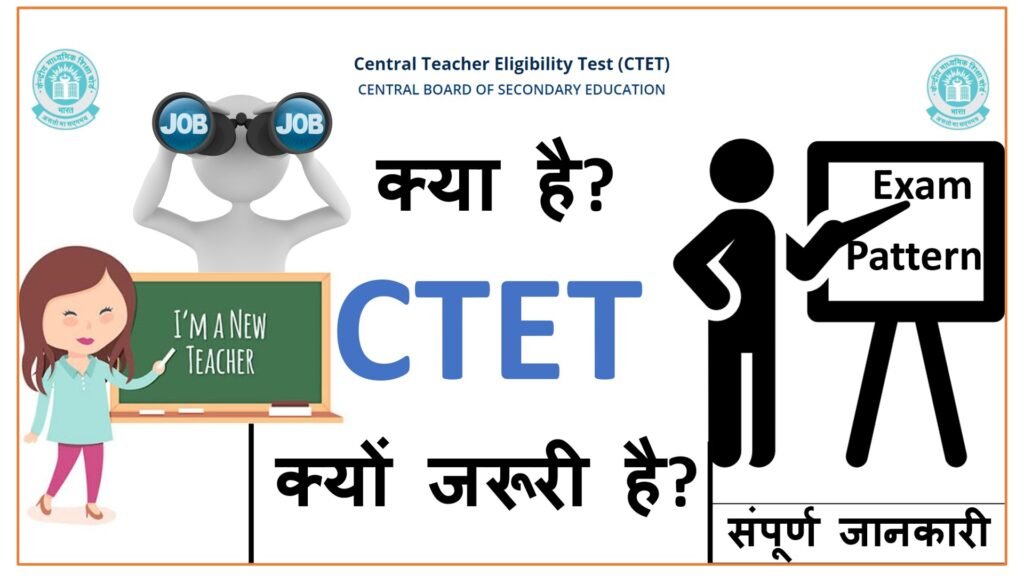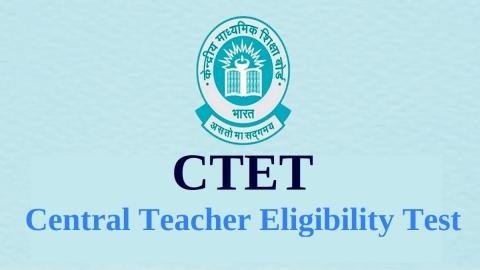The Central Teacher Eligibility Test (CTET) 2026 has officially been announced by the Central Board of Secondary Education (CBSE). As per the latest notice released on October 24, 2025, the 21st edition of the CTET will be conducted on February 8, 2026 (Sunday) across 132 cities nationwide. The exam will be held in 20 languages, enabling lakhs of teaching aspirants to qualify for central and state government teaching positions.
CBSE’s announcement provides a significant boost to aspiring teachers who were eagerly awaiting the new exam schedule. Notably, there will be no CTET exam in 2025, meaning this February session marks the next opportunity to qualify for candidacy.
What is CTET?
The Central Teacher Eligibility Test (CTET) is a national-level eligibility exam conducted by CBSE to assess the teaching aptitude and knowledge of candidates aspiring to teach Classes 1 to 8 in government and government-aided schools across India. This includes Kendriya Vidyalayas, Navodaya Vidyalayas, and schools under various Union Territories.
Holding a valid CTET certificate is considered an essential qualification for teaching positions as per the National Council for Teacher Education (NCTE) guidelines. The certification enhances an individual’s employability in both public and private schools.
Official Announcement and Key Dates
The official CTET 2026 notice confirms the exam date as February 8, 2026. The Information Bulletin, containing detailed information such as syllabus, eligibility, and fees, will be released on October 25, 2025. Candidates will then be able to apply through the official website ctet.nic.in once the application window opens.
Important Dates:
| Event | Date |
|---|---|
| Official Notice Release | October 24, 2025 |
| Detailed Notification & Bulletin | October 25, 2025 |
| Application Window Begins | Expected late October 2025 |
| Exam Date | February 8, 2026 (Sunday) |
| Result Declaration (Expected) | April 2026 |
Applicants will have approximately 30 days to complete and submit their online applications.
Exam Structure and Pattern
CTET 2026 will consist of two papers, each containing 150 multiple-choice questions, each worth 1 mark. There is no negative marking, ensuring candidates can confidently attempt all questions.
- Paper I: For candidates who wish to teach Classes 1–5 (Primary Level).
- Paper II: For those aiming to teach Classes 6–8 (Upper Primary Level).
Both exams will be held offline and are expected to follow this timing pattern based on previous sessions:
| Paper | Timing | Duration |
|---|---|---|
| Paper II | 9:30 AM – 12:00 PM | 2.5 hours |
| Paper I | 2:00 PM – 4:30 PM | 2.5 hours |
Each paper covers sections such as Child Development and Pedagogy, Language I and II, Mathematics, and Environmental Studies for Paper I, while Paper II includes Mathematics & Science or Social Studies for upper classes.
Eligibility Criteria
Candidates planning to appear for CTET 2026 must meet CBSE’s updated academic criteria:
- For Paper I:
Candidates should have completed or be in the final year of a Diploma in Elementary Education (D.El.Ed) or Bachelor of Elementary Education (B.El.Ed), along with a minimum of 50% marks in senior secondary education. - For Paper II:
A graduation degree along with a D.El.An Ed, B.Ed., or equivalent qualification is mandatory. Candidates in the final year of their respective programs can also apply.
There are no age restrictions for taking the CTET exam, making it accessible for all eligible teacher aspirants.
Medium of Examination
The CTET 2026 will be conducted in 20 languages, reflecting India’s linguistic diversity. CBSE ensures equitable participation from candidates across regions by allowing them to select their preferred medium during application submission.
Examination Centres and Cities
CBSE will organise CTET 2026 in 132 cities across India, making the test more accessible to both rural and urban candidates. Each test centre will adhere to strict invigilation standards and transparent evaluation measures. Candidates should carefully select their preferred examination city, as changes after application submission are typically not permitted.
Application Process
The CTET 2026 application process will be completed purely online through ctet.nic.in. Candidates should follow these steps for registration:
- Visit the official website (ctet.nic.in) once the application link activates.
- Register by filling in personal details and generating a login ID.
- Complete the application form, ensuring accuracy in educational details.
- Upload a recent photograph and signature in the prescribed format.
- Pay the application fee online via debit card, credit card, or net banking.
- Download and save the confirmation page for future reference.
CBSE will publish all payment guidelines and application fee details within the notification bulletin.
CTET 2026 Syllabus Overview
The CTET syllabus aims to evaluate fundamental teaching skills, pedagogical understanding, and subject knowledge.
Key sections:
- Child Development and Pedagogy (common in both papers)
- Language I (Reading comprehension, Teaching aptitude)
- Language II (Language proficiency and pedagogy)
- Mathematics & Environmental Studies (Paper I)
- Mathematics & Science / Social Studies (Paper II)
The syllabus closely aligns with the concepts taught in D.El.Ed and B.Ed courses. Candidates should study the updated syllabus published with the CTET bulletin for 2026.

Certificate Validity and Benefits
Once qualified, candidates receive a CTET certificate valid for a lifetime. This certification makes them eligible to apply for teaching posts in central government schools such as KVS, NVS, Army Public Schools, and various state-aided or private schools that accept CTET scores.
Qualifying for CTET significantly boosts employability, as teaching roles in government institutions increasingly mandate CTET certification under NCTE regulations.
Preparation Tips for CTET 2026
- Study the official syllabus thoroughly to focus on pedagogical aspects.
- Solve previous years’ question papers and mock tests for practice.
- Focus on time management, especially during the 150-question format.
- Keep track of notifications at ctet.nic.in for hall ticket and exam updates.
- Use NCERT textbooks as the base material for subject preparation.
